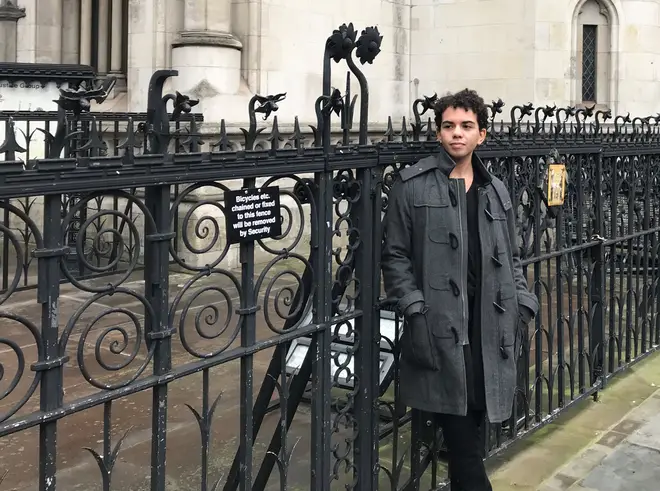
James O'Brien 10am - 1pm
1 March 2020, 09:43

A woman who received gender reassignment surgery as a teenager is suing an NHS trust, saying her case was "rushed" and left her suicidal.
Keira Bell is taking the Tavistock and Portman NHS Trust to court over her gender dysphoria treatment at the facility.
Gender dysphoria is a condition where a person experiences distress due to a mismatch between their biological sex and the gender they identify as.
23-year-old Ms Bell, who used to identify as male, says she was given "hormone blockers" after "three sessions" at the Tavistock Centre.
She said that these drugs have damaged her physical and mental health.
She says at the time there was "no doubt" she wanted to become a boy.
A judge gave the case the go-ahead for a hull hearing this week.
Ms Bell's legal team will argue that as se was a child at the time, she could not give informed consent and the potential future risks were not explained fully.
"I wanted to go onto the medical pathway as soon as possible, I was very eager and I was very reluctant about speaking to anyone who would possibly get in the way of that," Ms Bell explained.
"I just realised that it (gender reassignment) hadn't worked after a few years… I just went into like a menopause like state and everything just kind of shut down.
"I felt drained and tired and had nothing but negative effects from it really, I didn't have a good experience with it at all.
"I think the depression kicked in a bit more because I was without any hormones in my body, especially at such a young age when it's supposed to be at such a peak.
"It's very detrimental to someone and the psychological and the brain effects I think are completely understudied as well."
The Gender Identity Development Service (GIDS) at the Tavistock and Portman NHS Foundation Trust is where children with gender dysphoria are treated on the NHS.
GIDS had 2,590 children referred to them in 2018-19, compared with just 77 patients a decade ago.
The clinic specialises in children under 18 struggling with their gender, some of which are as young as three.
In a statement, the Gender Identity Development Service at the Tavistock and Portman NHS Foundation Trust said: "A judge has this week decided that the proposed judicial review of the Gender Identity Development Service approach may proceed to a hearing.
"We welcome the opportunity this provides to talk about the service and to stand up for our dedicated staff who put the best interests of the young people and families at the heart of their practice.
"GIDS provides a thoughtful and measured service for children, young people and their families who come to us in considerable distress.
"Our clinicians have no preconceptions about outcomes for the young people who are referred to our service, all of whom are provided with psycho-social support throughout their time with us.
"While physical intervention is only accessed by a minority of our patients, it is important that this option remains available and is informed by the latest evidence."
The statement added: "It is very clear from our first-hand experience of working with these young people and their families that, for some, doing nothing is not a neutral act.
"We also believe in the rights of young people, with support from their families and clinicians, to make informed decisions about their care, in the way they would do in any other aspect of their health.
"We welcome the opportunity to make the case for the quality of care the service provides in a thorough and nuanced way.
"Our work in GIDS is provided in accordance with best practice and relevant national and international specifications and guidelines.
"We are disturbed by the level of misinformation in relation to the support provided to these young people. The often-toxic debate around the topic has caused considerable distress to patients and families.
"We hope the hearing will serve to set the record straight and put centre-stage the voice and interests of young people living with gender dysphoria."